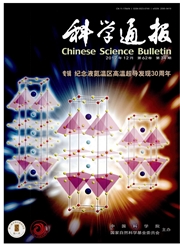

 中文摘要:
中文摘要:
以北京市城市固体废物管理系统为例,采用不确定双层规划方法建立优化模型(IBLP-G&C),其中以区间参数反映系统的不确定信息,从环境角度体现对温室气体排放量的严格控制,从经济角度体现区域管理成本最小化,实现环境目标和经济目标的集成化.并提出基于模糊满意度的相互作用2阶段算法对模型进行求解.结果表明,在规划期内,填埋场、生化处理厂、焚烧厂的处理比例达到0.25:0.35:0.40,垃圾资源化利用率达到75%;填埋场是温室气体的首要排放源,而生化处理厂和焚烧厂是管理成本的主要贡献单元.3种模型的综合对比分析表明,系统成本越低,温室气体排放量越高,造成较低的垃圾资源化程度;开展填埋气综合利用是一种潜在的、能同时降低温室气体排放量和削减系统成本的途径;与2个不确定单目标规划方法(ILP-GHG和ILP-COST)相比,不确定双层规划模型能够提供不确定条件下的综合考虑环境影响和经济效益的固体废物管理规划方案.
 英文摘要:
英文摘要:
In this study,based on inexact bi-level programming method,an optimization model(IBLP-GC) was developed to embody strict control of greenhouse gas(GHG) emissions and minimized economic cost while taking Beijing municipal solid waste management system as a case study. Then,the integrated targets of environment and economy were achieved. In the model,parameters were expressed as interval numbers to reflect system uncertainties. An interactive solution algorithm on basis of the fuzzy possibilistic approach was given to solve the developed model. The results showed that waste treated by landfill: biochemical: incineration would achieve 0.25:0.35:0.40,with waste resource utilization rate reaching 75%; the contribution of landfill facilities to GHG emissions would remain predominant,while the composting and incineration facilities would be large proportion of system management cost. Further comparative analysis between the inexact bi-level programming and two inexact single-objective programming models indicated that lower system cost would correspond to higher GHG emissions,then leading to a lower resource utilization rate; a potential approach to synchronously mitigate GHG emissions and minimize system cost may be landfilling gas utilization. Compared with the a couple of single-objective models,the proposed IBLP-GC model can provide compromised schemes under an integrated consideration of environmental impact and economic efficiency under uncertainty.
 同期刊论文项目
同期刊论文项目
 同项目期刊论文
同项目期刊论文
 Simulation-Based Inexact Rough-Interval Programming for Agricultural Irrigation Management: A Case S
Simulation-Based Inexact Rough-Interval Programming for Agricultural Irrigation Management: A Case S Bi-level decision-making approach for GHG emissions control and municipal solid waste management und
Bi-level decision-making approach for GHG emissions control and municipal solid waste management und Degradation kinetics of dense nonaqueous phase liquids in the environment under impacts of mixed whi
Degradation kinetics of dense nonaqueous phase liquids in the environment under impacts of mixed whi Integrated regional renewable and non-renewable energy policies identified through interval stochast
Integrated regional renewable and non-renewable energy policies identified through interval stochast Stochastic goal programming based groundwater remediation management under human-health-risk uncerta
Stochastic goal programming based groundwater remediation management under human-health-risk uncerta A Multiobjective Optimisation Model for Groundwater Remediation Design at Petroleum Contaminated Sit
A Multiobjective Optimisation Model for Groundwater Remediation Design at Petroleum Contaminated Sit Numerical solutions comparison for interval linear programming problems based on coverage and validi
Numerical solutions comparison for interval linear programming problems based on coverage and validi Estimation of stochastic colored noise signal driving DNAPLs degradation kinetics in the natural wat
Estimation of stochastic colored noise signal driving DNAPLs degradation kinetics in the natural wat Optimization-based multicriteria decision analysis for identification of desired petroleum-contamina
Optimization-based multicriteria decision analysis for identification of desired petroleum-contamina Planning of water resources management and pollution control for Heshui River watershed, China: a fu
Planning of water resources management and pollution control for Heshui River watershed, China: a fu A modified fuzzy credibility constrained programming approach for agricultural water resources manag
A modified fuzzy credibility constrained programming approach for agricultural water resources manag Characterization of Integrated Noises Driving Bacterial Degradation Kinetics in the Water Environmen
Characterization of Integrated Noises Driving Bacterial Degradation Kinetics in the Water Environmen Enhanced electrokinetic technologies with oxidization-reduction for organically-contaminated soil re
Enhanced electrokinetic technologies with oxidization-reduction for organically-contaminated soil re A fuzzy inexact two-phase programming approach to solving optimal allocation problems in water resou
A fuzzy inexact two-phase programming approach to solving optimal allocation problems in water resou An inexact stochastic optimization model for agricultural irrigation management with a case study in
An inexact stochastic optimization model for agricultural irrigation management with a case study in 期刊信息
期刊信息
